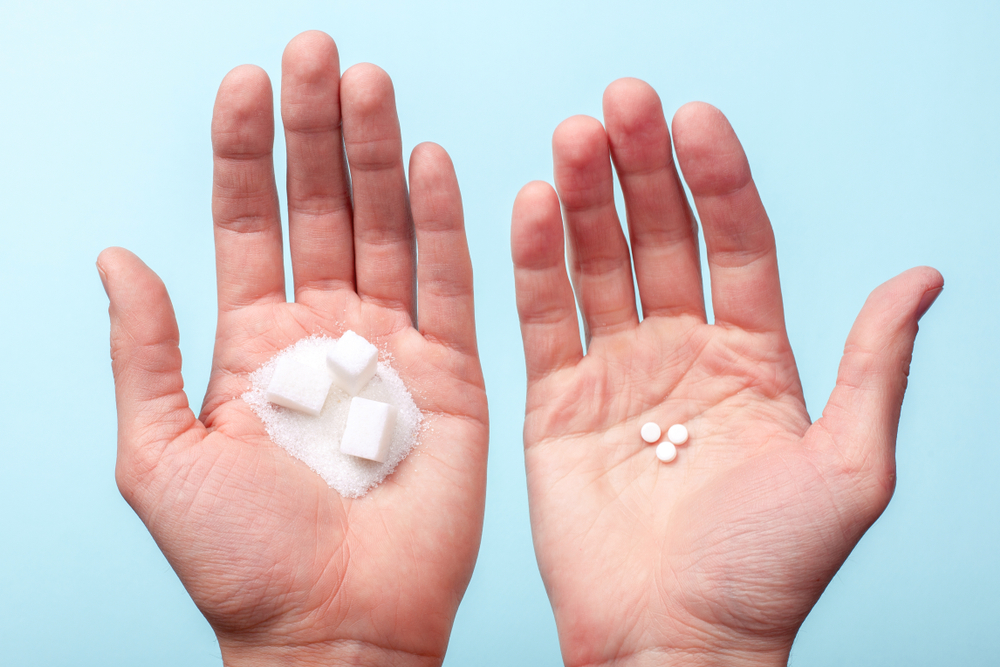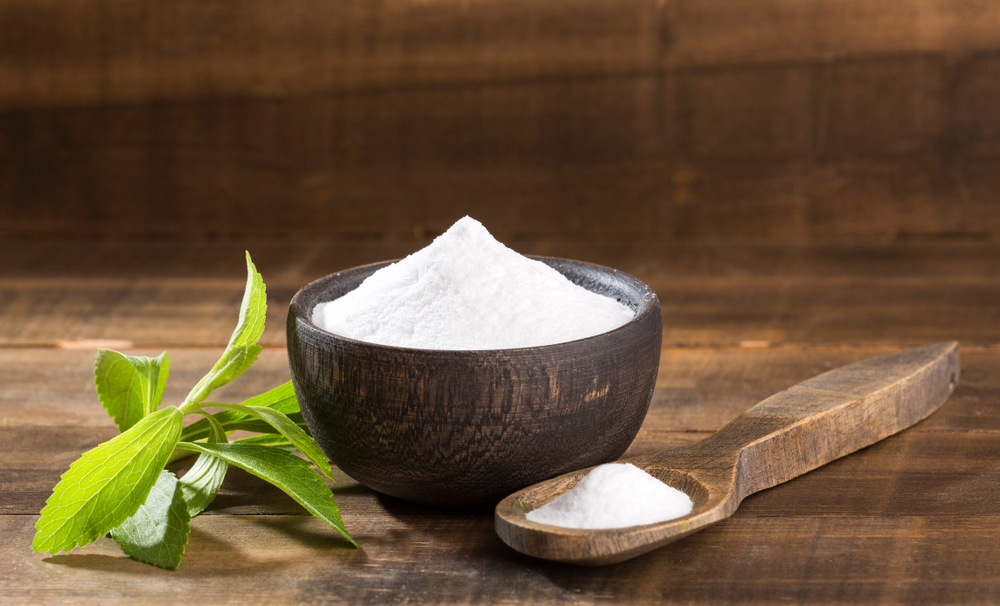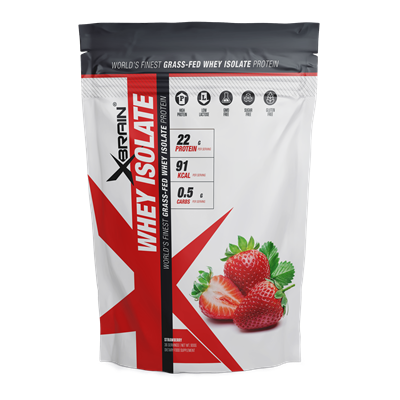
You probably think that you choose your supplements based on their ingredients, but manufacturers assume that you will want your supplement to taste good. This is a problem. Because they also reason that most people who buy their supplements will not want to consume additional sugar, they often use artificial sweeteners, such as aspartame, saccharin, or acesulfame-k. What they don’t tell you is that the artificial sweeteners are ruining the whole effect of the supplement.
Chances are that if you are using supplements you care about improving fat to lean muscle ratio. You might be trying to lose weight or at least maintain your current weight. Very few people buy products to actually gain fat. We currently have more artificial sweeteners and products that use them than we’ve ever had, and we also have an obesity epidemic. Of course correlation does not equal causation, but it is nonetheless very suggestive.
But we don’t have to rely on anecdotal evidence. There is scientific evidence that fooling your body with non-nutritive artificial sweeteners can result in fat gain. It turns out that the body uses the sweet taste as one of the indicators of how many calories you are taking on board. However, long-term consumption of sweet tasting drinks or foods, or supplements, that don’t contain the calories predicted by the sweet taste confuse the body, leading to a lack of response when food that is high in calories is consumed. One study in rats fed on saccharin containing foods resulted in them taking on more calories, increased wait and increased adipose tissue. Even more worrying was that the animals’ metabolism appeared to slow down compared to controls fed normal diet with sugar.
The increased calorie intake and lower metabolism goes a long way to explain the anecdotal evidence that shows that artificial sweeteners never appear to help their consumers lose weight. But you don’t have rely solely on animal studies, which sometimes don’t reflect what goes on in the human body. Because artificial sweetener use is particularly heavy in diet sodas, many studies look at the association between diet soda consumption and health outcomes in people, rather than health supplements. However it is not unreasonable to conclude that the effect is down to the use of artificial sweeteners since that is the difference between diet and regular sodas. You might be surprised to learn, that drinking sodas with artificial sweeteners appear to increase the probability of developing some of the terrible chronic diseases more than the sugar they replace.
Apart from general weight gain, one of the big problems with consuming too much sugar is the development insulin resistance and type II diabetes. Sugar is very easy to digest, rapidly increasing blood sugar level and a subsequent release of a large amount of insulin. As tissues are constantly subjected to the action of insulin they stop responding to it and insulin resistance develops. Given all this you would think that substituting sugar with an artificial sweetener like aspartame would be helpful at keeping diabetes in check. However, research studies show that the opposite is true. In one study published in the journal Diabetes Care looked at over 6000 individuals. The researchers found that consumption of diet sodas was linked with a 76% higher risk of developing type II diabetes. Although this is an observational study, and does not exclude the possibility that another factor was involved, it is highly suggestive of the harm artificial sweeteners do.
Other studies in human looked at the increased risk of developing metabolic syndrome in diet soda drinkers. Metabolic syndrome is a group of symptoms, which often occur together, and are a good predictor of developing diseases such as type II diabetes, cardiovascular disease or stroke. These include central obesity (belly fat), high fasting glucose level, high triglycerides, high blood pressures and low HDL cholesterol. One study followed the diet soda drinking habits, and health of over 9000 people for 9 years, and found a 37% increased incidence of metabolic syndrome in people who regularly drank soda with artificial sweeteners.
Other studies have shown that using artificial sweeteners leads to an increase in weight and fat body content. Although this seems very counterintuitive, the explanation seems to be that artificial sweeteners cause people to consume more food, including more real sugar. There is also the possibility of lowered metabolic rate as seen in the animal study.
Add to this the fact that artificial sweeteners have been linked to increased cancer risk in some animal studies. Of course other studies did not find this correlation, and the compounds are approved by the FDA and the EFSA , but do you really want to take the risk. In addition aspartame, one of the most popular and widely used artificial sweeteners appears to cause neurological symptoms in some people that range from headaches to far more debilitating syndromes.
It is quite obvious that you want to avoid supplements that contain artificial sweeteners. They will ruin the whole effect you are trying to achieve with the supplement and you might end up worse off than if you didn’t use any supplement. At the same time you don’t really want to take supplements that contain sugar. Although studies indicate that sucrose is safer and healthier than artificial sweeteners, it is far from a healthy option.
Luckily you don’t have to resign yourself to bad-tasting supplements. There is a healthy, natural, low calorie alternative to artificial sweeteners or sugar. That alternative is stevia, a shrub-like plant native to South America, which has been used by the natives of Brazil to sweeten beverages, and for its medicinal properties for hundreds of years. Not only is stevia completely natural and safe, with no adverse effects observed, initial studies suggest that it can lower blood pressure and blood sugar levels and insulin sensitivity.


